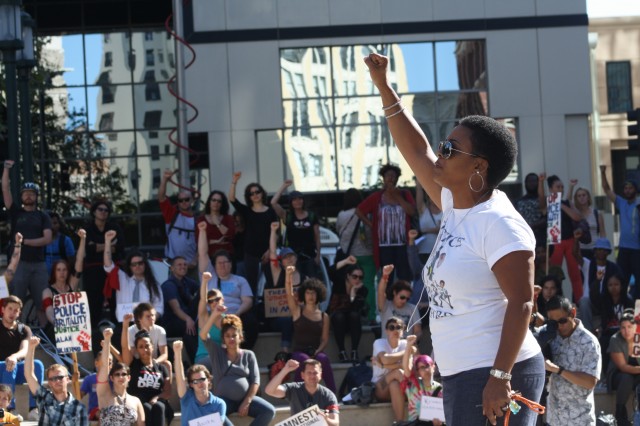"It's just too much," she said. "Our young men have no hope. It's jail or it's death, and they don't even imagine living past the age of 25. It's outrageous, all the names, all the lies, all the hurt, all the pain, it's just sickening. I'm sick to my stomach right now."
To many observers in Oakland, the scenes in Ferguson of militarized police officers and clouds of tear gas are reminiscent of local clashes, including skirmishes between police and Occupy protesters and the protests that followed the 2009 BART police killing of Oscar Grant.
"The very thing that the community is upset about, the use of deadly force, the police then come out with even more show of deadly force, and even more sophisticated deadly force, and that does not in any way temper the frustration and anxiety and angst that people feel toward the police," Oakland civil rights attorney John Burris said.
"When they come forward with Gestapo-type machinery and tear gas and grenades they throw into the crowd, we saw in Oakland that it did not help," he continued.
The Oakland Police Department's crowd control policy has been repeatedly criticized, litigated and reworked over the past decade. A lawsuit over the Jan. 28, 2012, Occupy Oakland protest, in which 400 demonstrators and several journalists were arrested, is still pending.
A report in June of that year by then-federal compliance director Thomas Frazier found "the crowd control tactics used by OPD are outdated, dangerous and ineffective."
But since then, Burris said, the department's culture is changing, and more recent protests have been marked by a more muted police presence.
"I think that less presence, and certainly less presence in terms of the armored weaponry (deployed) in Ferguson, is much better," he said. "When you have military trucks and officers standing on top of these armored trucks, it sends the wrong message to people."
Data from Oakland Police Beat, a project of KQED affiliate Oakland Local, show 10 teens were killed in officer-involved shootings by Oakland police between 1993 and 2012.
Both Burris and Jack Bryson, a friend of Oscar Grant's family, said fatal shootings in Oakland have dropped significantly since then.
"I think that OPD and city officials know that the community of Oakland will respond to a police killing in Oakland," Bryson said. Burris said federal monitoring of the department is also having an impact.
Burris and Blueford said Oakland's long history of activism around police issues, stemming from the Black Panther movement in the 1960s, compels people in the community to protest killings by police in other parts of the country.
"We have to say something," Blueford said.
